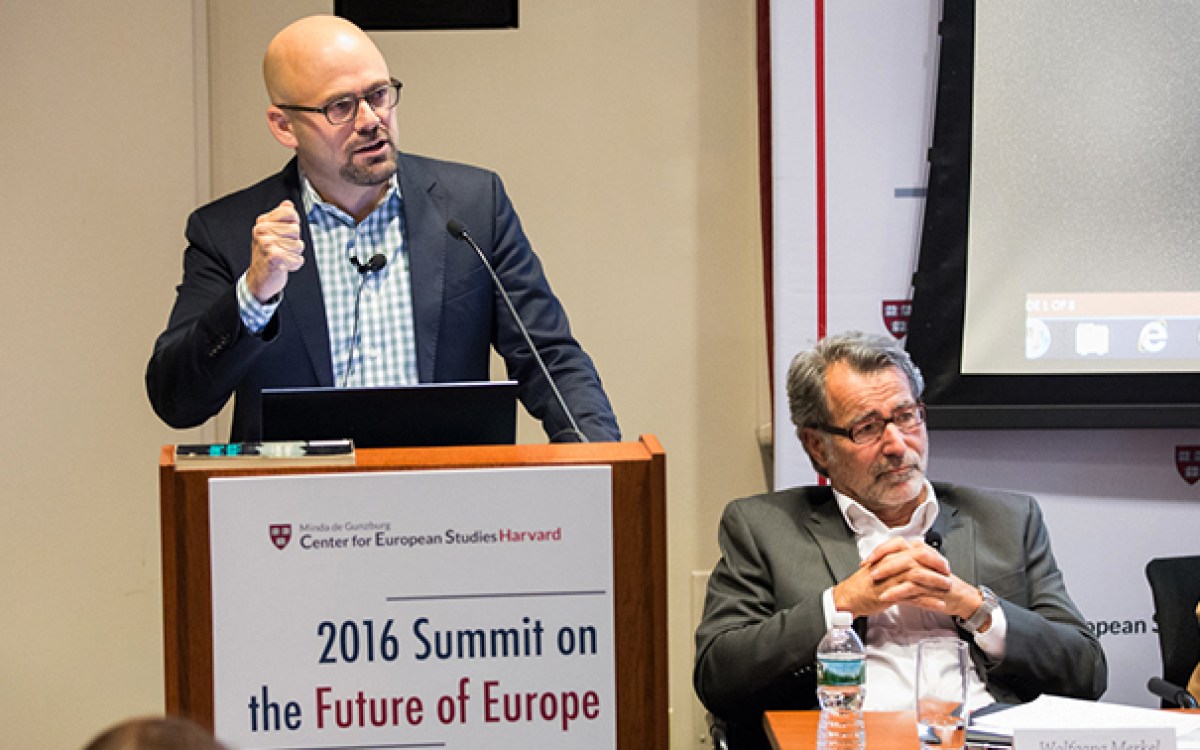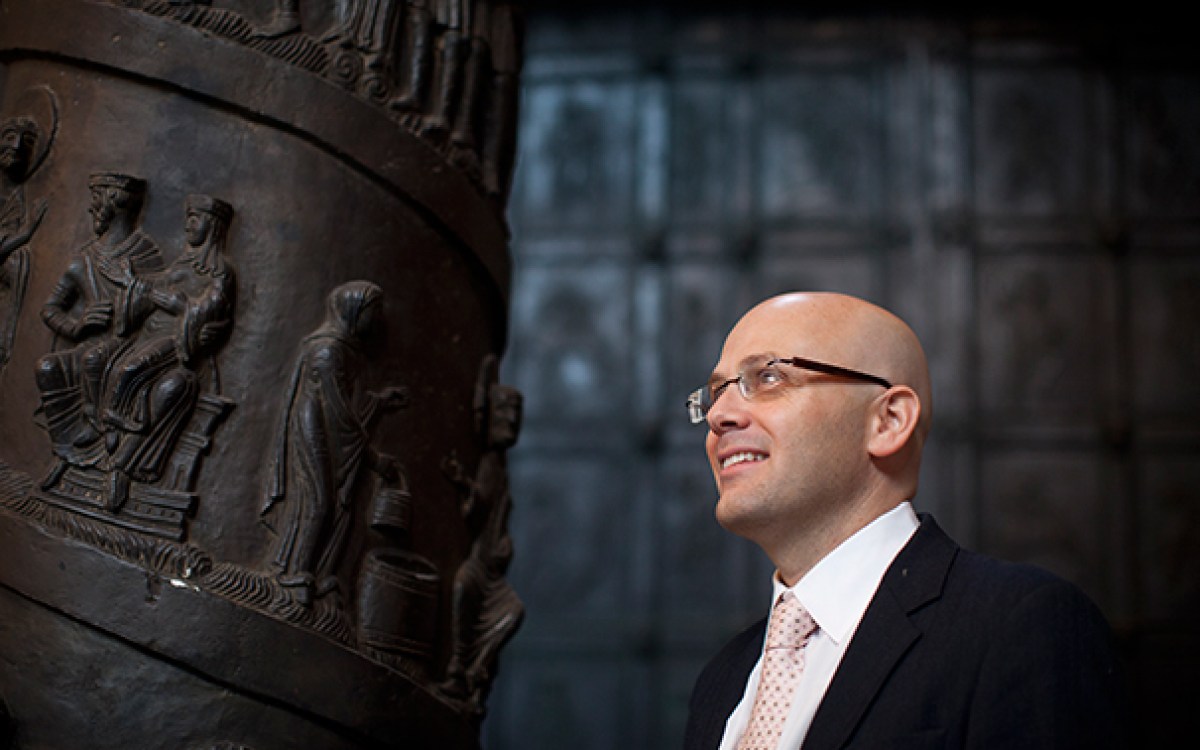
Daniel Ziblatt, Eaton Professor of the Science of Government, has been named this year’s Woodrow Wilson Foundation Award recipient for his book “Conservative Parties and the Birth of Democracy.”
Stephanie Mitchell/Harvard Staff Photographer
Ziblatt receives Wilson Foundation Award
The 14th Weatherhead faculty associate to receive award since 1958
You might say his scholarship captures the entire life span of democracy. Having written books on both the birth and death of that system of government, Daniel Ziblatt, Eaton Professor of the Science of Government, has been chosen as this year’s recipient of the Woodrow Wilson Foundation Award, a top accolade in political science, for his book “Conservative Parties and the Birth of Democracy.”
Ziblatt is the 14th Weatherhead Center for International Affairs faculty associate to receive this distinction since 1958, in the category of best book on government, politics, or international affairs by the American Political Science Association (APSA).
The award arrives in tandem with the success of his trade book, “How Democracies Die,” co-authored with Government Professor Steven Levitsky, which rose to best-seller lists in the U.S. and Germany this year and can be read as an extension of, or sequel to, “Conservative Parties.”
“Conservative Parties” also won the American Sociological Association’s Barrington Moore prize for best book in comparative and historical sociology this year, and two additional best book awards from the APSA, in the categories of comparative democratization and European politics and society.
Ziblatt had been intrigued by the question of why some European countries, during the first wave of democratization (early 19th century to the 1930s), embraced democracy and held on to it, while others saw liberalization efforts overrun by fascism or authoritarianism.
While political science scholarship has largely focused on the rise of liberal, progressive, or socialist movements as the impetus for democratic transformation, looking at this period through the frame of conservative politics offers an unexpected analysis for democratization studies.
The book begins with a question: Why would nondemocratic leaders and wealthy elites of the 19th century submit to democracy when it’s a de facto threat to their power?
“The assumption sometimes is that if the democratic forces are strong enough you’ll get democracy, and the point of the book is to tell the second part of the story that’s often overlooked — what was the response of the ruling elites?” Ziblatt said.
By scouring the archives of European political parties and electoral records of the 19th and 20th centuries, Ziblatt discovered a pattern: The more organized and confident conservative parties were at the time of democratization, the likelier they were to embrace the new political system. The reason is this: if leaders with the most material wealth and power — typically conservatives — get to participate in the transformation, and help write the rules of competition, they will concede to some reforms because they believe they have enough stake in the system to maintain their power.
Countries that have followed this model include Britain, Sweden, Norway, Denmark, the Netherlands, and Belgium, which successfully transitioned from autocracy to democracy. Countries that harbored weak, fragmented, or corrupt conservative parties, such as Germany, Spain, Italy, and countries in Latin America and the Middle East, found themselves vulnerable to demagogues, extremists, and oligarchies.
In “How Democracies Die,” which extends this analysis to contemporary democracies, Ziblatt and Levitsky expand on the function of “gatekeeping,” preventing extremists or outliers from gaining control within a party. For example, strong, organized conservative parties, such as Britain and Sweden’s in the 19th century, were are able to maintain a center-right orientation even in the face of far-right challengers, while fractured parties in Germany during the interwar period succumbed to Hitler’s demagoguery.
“One big lesson from the second book is that the role of the center right or conservative or right-wing forces are really important for affecting the stability of democracy,” Ziblatt says.
“Today, when one looks at the rise of new demagogue outsider politicians, the stance taken by center-right parties to those outsiders really shapes whether or not democracy dies.”






